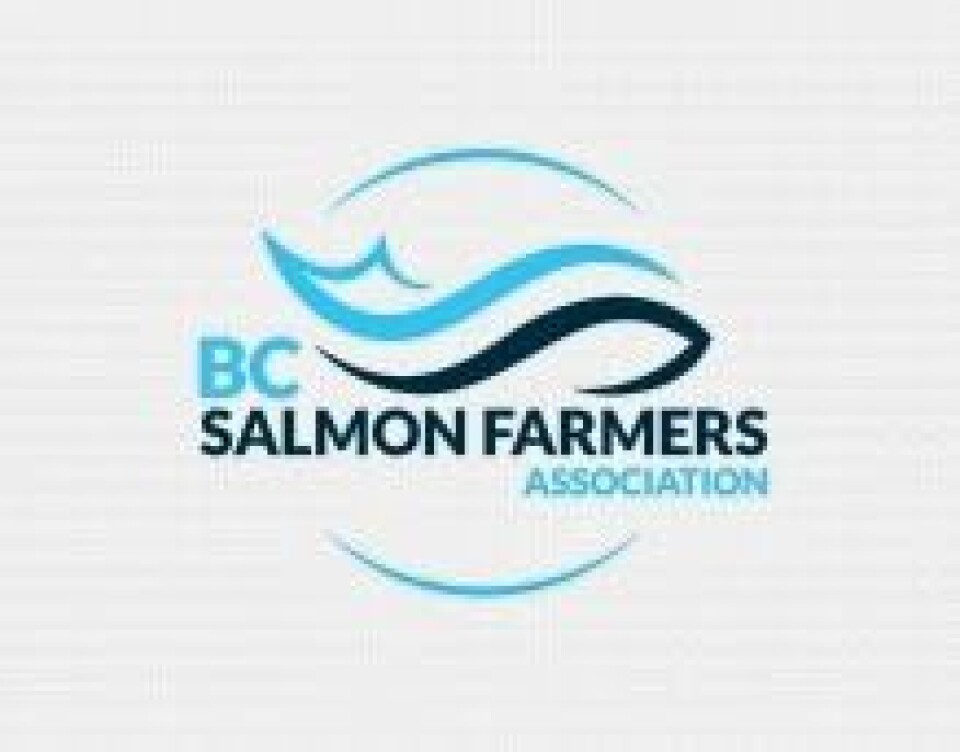
BC dialogue breakthrough
A wide range of stakeholders, including representatives from organisations that often criticise the salmon industry, gathered on Vancouver Island last week, for a first-of-its-kind event.
This past week the BC Salmon Farmers Association (BCSFA) held a workshop in Nanaimo BC, attracting stakeholders from academia, industry, government and non-profit groups, to gather together and discuss research priorities for understanding interactions between farmed salmon and the BC coastal ecosystem.
The first of it's kind on the West Coast of Canada, this workshop provided an opportunity to link the research activities of the salmon farming industry in BC with those of academia, government and conservation organizations.
The workshop focused on updates on existing fish health and ecology, pest management and marine environmental research projects and programs, and a review of the BCSFA Marine Environmental Research Program's (MERP’s) research priorities for 2016.
As part of the event, leading experts in salmon biology, ecology and conservation gave presentations focusing on marine stewardship through partnerships. Experts included Dr Richard Beamish with Fisheries & Oceans Canada (DFO), Dr Brian Riddell with the Pacific Salmon Foundation (PSF), and Scott Wallace from the David Suzuki Foundation (DSF).
Sharon DeDominicis, the Director of Regulatory Compliance and Certification for Marine Harvest Canada, commented on collaborative nature of the workshop.
"As soon as I entered the lecture theatre, the value of the conference struck me," she said. "To my left and right were world class scientists, senior bureaucrats, environmentalists, industry leaders, and politicians. All of us in the same place, sharing perspectives - with the aim to advance scientific knowledge and develop solutions."
"The open and generous spirit of the seminar created the right chemistry for fruitful dialogue. In particular, the section on salmon migratory pathways - with three different scientific presentations - clearly demonstrated how rapidly we can gain insight into salmon migrations when we work together", she added.
The collaborative nature of the workshop was perhaps epitomized by the presence of notorious salmon-farming critic the DSF. Although they have been engaged and involved before, attending the event organized by the BCSFA proves there is an ability for constructive dialogue.
“There is no denying that the industry has evolved”, said the Executive Director for BCSFA, Jeremy Dunn. “The ability to achieve certification is there and the industry drive to get there is real.”
The DSF has often criticized the lack of available information and data surrounding the industry. Data sharing and collaborations are a necessary component for progress, and for people who have been opponents in the past to engage in constructive dialogue was a big step forward.
“Transparency is key”, said Scott Wallace, a senior scientist from the DSF. “Collaboration is a common understanding of a problem with a common goal, trust, and understanding.”
“It was great to have them part of that conversation”, Dunn applauded.
The second day of the event featured technical sessions including talks on wild salmon migration, sea lice monitoring programs, fish health programs and understanding the marine environment.
One project initiative that will be funded by MERP is led by Dr Shannon Balfry at the Vancouver Aquarium, looking the potential for cleaner fish (perch and lumpfish) in BC salmon farms.
“Improved sustainability of aquaculture fits well with Vancouver Aquarium’s Mission Statement,” said Balfry.
Another project, conducted by Kintama Research for the PSF, uses new small acoustic tags to track migration time and survivability of juvenile Pacific salmon.
“Our industry has a great desire for deep collaboration within BC, as well as nationally and internationally”, said Dunn.
Dunn said that listening to the researchers at the workshop “lit a fire”. He was “inspired by the genuine passion that they have for the marine environment”. He told Fish Farming Expert that the BCSFA wants to host this workshop every year, and encourages a similar event to happen in Atlantic Canada.
Thoughts of data sharing and transparency get brought up at an international table which is very important. “We want to be about being open about how the industry is and use the data to educate people on what’s happening now”, said Dunn.
One over-arching priority to current research in the industry is the issue of climate change. Dunn says as the ocean climate changes, it's important to ensure that the state of knowledge is constantly updated.
“We are learning that climate effects so much – when we look long term what does this mean for fish health and management for farms”, said Dunn. “Understanding more about what is happening in the environment will help guide future decisions for our industry.”
Dunn said the BCSFA intends to hold this workshop every year, to hear from the researchers and stakeholders, and to continue sharing the data. “We want to continue to have the dialogue about where the gaps and overlaps in information are so that overlaps in data can be used to create a more powerful story”, said Dunn, “The power of sharing and access to available data is very strong.”
MERP is a research funding program that was started in 2014 through a commitment by the salmon farming industry to dedicate $1.5 million to research related to the health of the marine environment and wild and farm-raised salmon interactions, between 2015 and 2020.
The BCSFA holds research and development as one of the top priorities in maintaining a sustainable industry.




















































